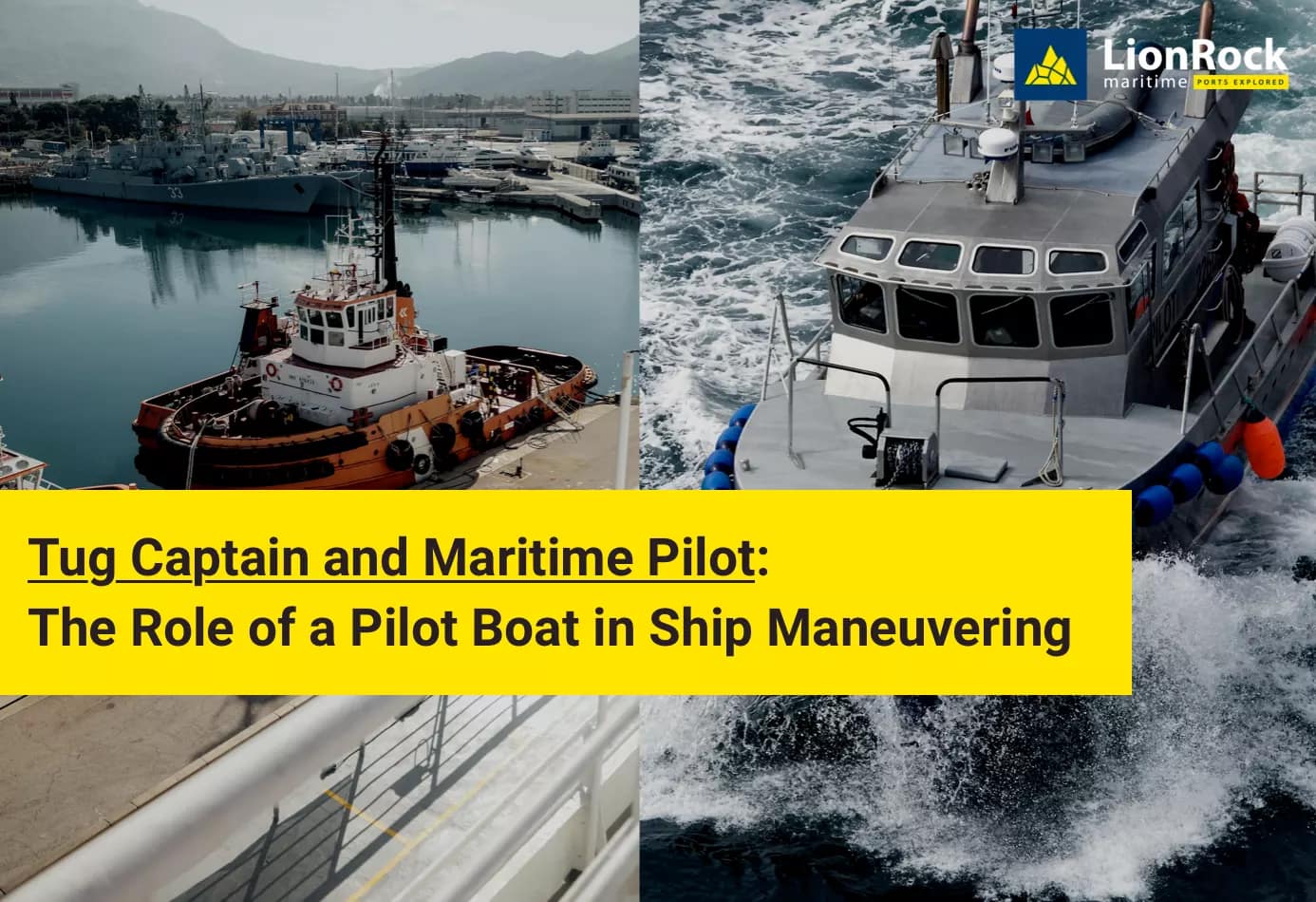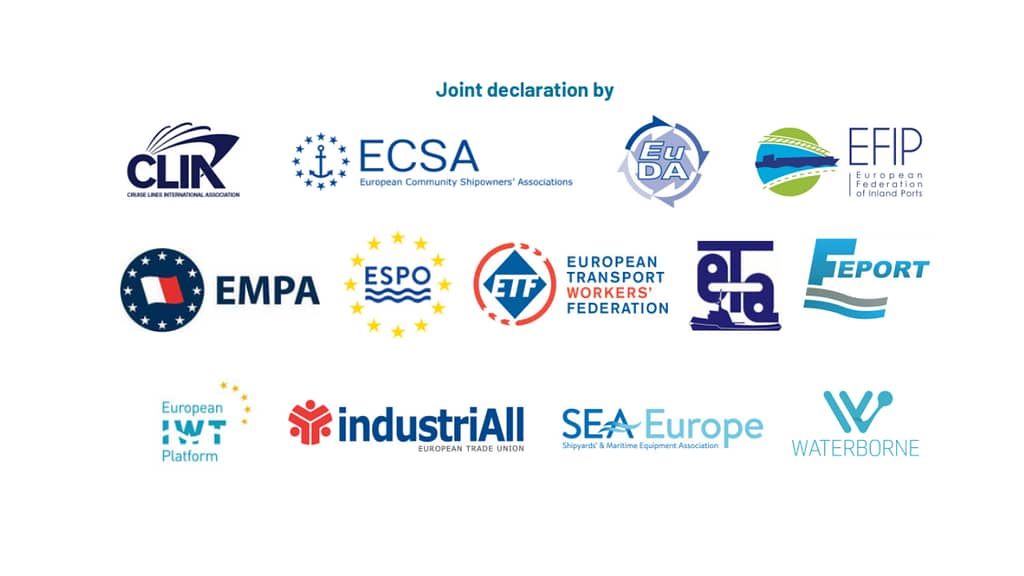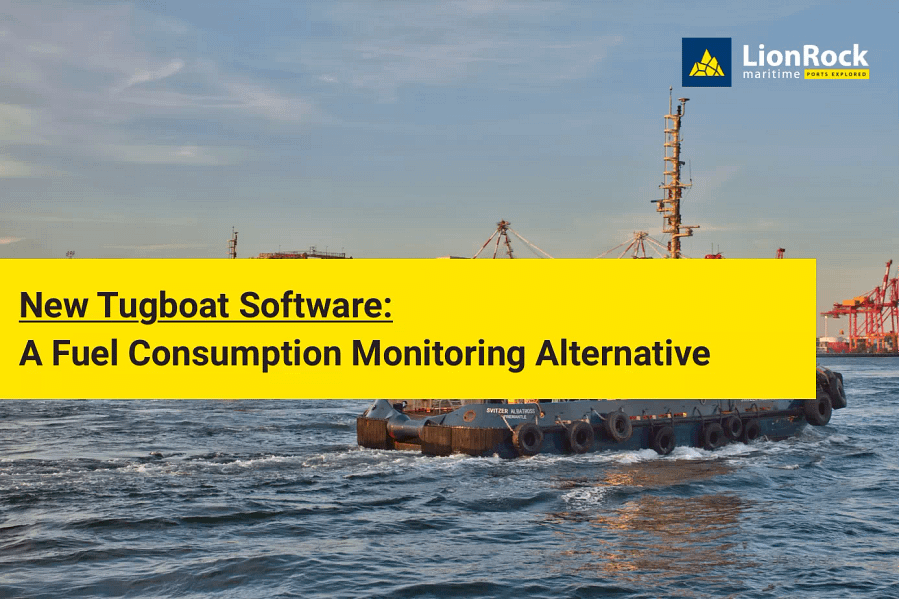Tug Captain and Maritime Pilot: The Role of a Pilot Boat in Ship Maneuvering
Facing the urgent need to reduce greenhouse gas emissions, the maritime industry is turning to data-driven practices to enhance the efficiency of pilot and tugboat operations. This article explores how integrating data helps optimize fuel consumption, supports collaborative initiatives, and promotes sustainable port activities without compromising safety.

Enhancing Maritime Pilot and Tugboat Operations Through Data-Driven Practices
The effects of climate change are increasing the urgency of all sectors of the blue economy to curb their emissions. According to the IMO, maritime shipping accounts for nearly 3% of all global greenhouse gas emissions, equivalent to approximately 1.2 gigatons of carbon dioxide.
When maneuvering ships into and out of ports, pilots and tugboat captains first and foremost responsibility is to do this in a safe manner. Nonetheless, there is a growing recognition that maneuvers should also be executed with as low emissions as possible. Hence, towage and the pilot industry are taking initiatives to adopt greener practices. This article explores the various strategies these industries are employing to mitigate their environmental impact, highlighting the existing efforts and the importance of integrating data into these.
Collaborative Efforts to Reduce Emissions
Fuel consumption in maritime operations can be significantly influenced by the collaborative efforts of tugboat captains and maritime pilots. The efficiency of maneuvers in port, including the level and nature of tug assistance, directly impacts fuel usage. Additionally, the expectations set by pilots regarding tugboat speed and power usage during operations can drive significant changes in fuel consumption.
To address emissions effectively, a broader, industry-wide approach is necessary. Accordingly, to help reduce the emissions of tugboats and pilot ships, the European Tugowners Association (ETA) Nautical Technical Committee has worked together with the European Maritime Pilots Association (EMPA), to establish practices to improve energy efficiency. Their advice is condensed in a collaborative report, which defines a series of recommendations for tugboat captains, pilots, and harbor masters to help them optimize the energy efficiency of the tugs and the assisted vessels during harbor operations. These recommendations are based on 3 main principles: Planning, Cooperation and Communication.
Furthermore, initiatives like the Greenport project exemplify how bringing together academia, industry, and training providers results in a comprehensive strategy to reduce emissions of port services. Greenport emphasizes behavioral changes through education and the strategic use of existing digital technologies to create substantial emission reductions.
As both of these initiatives highlight, the industry is well aware of its responsibilities in reducing emissions. It is making several attempts at how to achieve these goals, specifically focusing on making operations more energy efficient. Both approaches aim at reducing the fuel consumption of sailors, whether through increased planning or training of the captains. However, as we lay out in the following section, either attempt would greatly benefit from having data on the sailing behaviors of captains.
Role of Data in Promoting Sustainable Port Practices
To achieve the desired emission reductions that port operations are seeking with their initiatives, integrating data into their solution is essential. Doing so not only supports the behavior changes in the short term but also provides a measurable framework to further enhance operational efficiency and achieve environmental sustainability in the long term.
First, data plays an important role in setting benchmarks and monitoring the progress of the initiatives. By establishing clear performance metrics, tugboat operators and maritime pilots can regularly review their energy efficiency. This will help measure the impact of the given advice, and help establish best practices. This includes tracking fuel consumption, and emissions data during different types of ship maneuvers. In addition to setting benchmarks, these targets highlight areas for improvement.
Second, using performance data can enhance training programs developed by European bodies like the ETA and EMPA. By obtaining and analyzing specific data, training modules can be tailored to address common inefficiencies or errors in operations. Such a personalized training approach ensures each sailor receives guidance based on their performance, leading to more fuel-efficient tug masters and pilots. Even the most skilled operators can learn from data on their sailing patterns.
Try our Tugboat Fuel Saver Calculator here
How Data Can Improve Sailing Performance of Tugmasters and Pilots
Following the integration of data to set benchmarks and tailor training, maritime pilots can apply these insights to refine their operational strategies for tugboats further. Specifically, data related provided within the context of certain pilot commands – such as the timing and intensity of tugboat use in various port maneuvers – can help pilots identify optimal patterns that maximize fuel efficiency. Such a detailed analysis of pilots’ data can help illustrate the precise effects of their directives on fuel consumption, such as the differences between requiring full power for short durations versus moderate power for extended periods.
When provided with this understanding, pilots can make informed decisions to adjust their sailing behavior, thereby reducing unnecessary fuel use and emissions without compromising on service quality or safety. Such a proactive use of data not only complements the established benchmarks but also enhances ongoing efforts to optimize operational practices in real-time, leading to sustainable improvements across maritime operations.
Conclusion
The integration of data into port operations is not merely an option, but a necessity for promoting sustainable practices. By setting clear benchmarks and monitoring progress, maritime operators can ensure their initiatives lead to measurable improvements in energy efficiency and environmental sustainability. The continuous analysis and application of performance data play a critical role in refining operational strategies and enhancing training programs, ultimately leading to more efficient and environmentally friendly port activities.
Incorporating data into maritime practices allows for the identification of areas requiring improvement and the establishment of best practices tailored to real-world operations. Training programs enhanced by specific data insights ensure that all crew members, from the newest recruits to the most experienced pilots, can achieve higher levels of fuel efficiency and operational excellence.
Partner with LionRock Maritime for Sustainable Port Operation
Embracing data-driven practices allows the maritime industry to balance operational efficiency with environmental sustainability. At LionRock Maritime, we provide the insights and tools needed for this journey. Contact us to learn how our solutions can help your port operations thrive sustainably.
FAQ: Maritime Pilot and Ship Maneuvering
How do data-driven practices enhance the efficiency and sustainability of maritime pilot operations?
Data-driven practices allow maritime pilots to optimize ship maneuvering by analyzing key performance metrics such as fuel consumption and emissions. By integrating data into their operations, pilots can set benchmarks, monitor progress, and adjust strategies to improve efficiency. This not only enhances operational performance but also significantly reduces greenhouse gas emissions during port maneuvers, contributing to environmental sustainability.
What collaborative efforts are maritime pilots and tugboat captains making to reduce emissions during ship maneuvering?
Maritime pilots and tugboat captains are collaborating to execute maneuvers safely while minimizing environmental impact. Initiatives like the joint recommendations from the European Maritime Pilots Association (EMPA) and the European Tugowners Association (ETA) focus on improving energy efficiency through planning, cooperation, and communication. These efforts aim to optimize tugboat maneuvering and ship assistance, directly impacting fuel usage and reducing emissions during port operations.
Why is integrating data crucial for improving tugboat maneuvering and reducing emissions?
Integrating data into tugboat operations is essential for identifying inefficiencies and areas for improvement. By analyzing data on fuel consumption and sailing behaviors, tugboat captains can adjust their maneuvering techniques to optimize energy use. Data-driven insights support tailored training programs and help set clear performance benchmarks, leading to more sustainable and efficient tugboat maneuvering.
How can maritime pilots and tugmasters use data to enhance pilot boat operations sustainably?
Maritime pilots and tugmasters can utilize data to refine operational strategies for pilot boats by analyzing information related to pilot commands and tugboat usage during port maneuvers. This detailed data helps identify optimal patterns that maximize fuel efficiency without compromising safety. By making informed decisions based on these insights, pilots and tugmasters can reduce unnecessary fuel consumption and emissions, promoting sustainable pilot boat operations.
References
- ETA-EMPA Recommendations for Energy Efficient Harbour Towage
- https://eurotugowners.com/wp-content/uploads/2023/03/ETA-EMPA-PRESENTATION-final.pdf
- European Maritime Pilots’ Association: Mission, Vision & Values
- European Tugowners Association: Mission
- Video from European Tugowners Association
- The International Maritime Organization’s strategy on reducing greenhouse gas emissions from ships: IMO’s GHG Strategy
- https://www.linkedin.com/company/greenport-alliances/about/




